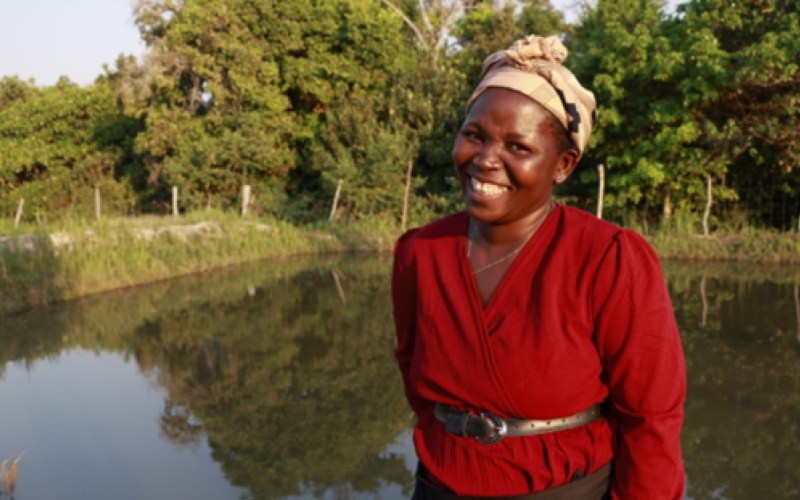
Highlights
- In Zambia—a landlocked country—aquaculture provides a critical source of affordable protein. Scaling training programs developed by WorldFish and supported through AICCRA Zambia partnerships are reaching thousands of fish farmers with practices that are boosting productivity by 70 percent and providing women with a more powerful role in production.
According to a report led by the Food and Agriculture Organization of the United Nations (FAO), fish is an important source of key micronutrients including vitamin B12, calcium, vitamin D, iodine, and selenium, and of essential fatty acids in the omega-3 family.
In Zambia, fish is an affordable source of animal protein. But due to declining stocks of fish caused by overfishing, unsustainable fishing methods, and the impacts of climate change, the gap between the demand for and supply of fish has widened sharply in recent years.
Zambia can only supply 85,000 metric tonnes of fish per year, whereas demand exceeds 180,000 metric tonnes annualy. This means that demand is mostly met mostly through imports of fish.